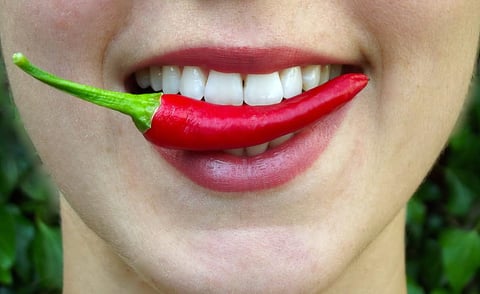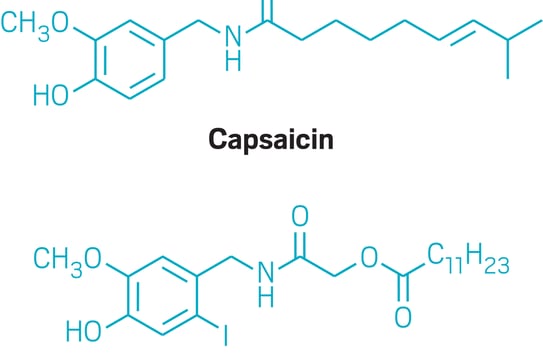Why Spicy Food Burns: The Sense Of Secret
Ever wondered why spicy food burns your mouth ? Discover the science behind the heat and learn why we crave spicy flavors, despite the intense sensations they provoke. Explore the fascinating world of spiciness and its effects on our bodies.
BLOGS-RATHBIOTACLAN
Why spicy Food Makes Your Mouth Burn ?
The Science Behind the Burn: Why Spicy Food Feels Hot and Why We Love It
Ever wonder why that bite of a chili pepper leaves your mouth feeling like it's on fire?
Or why wasabi seems to attack directly at your sinuses? The experience of eating spicy food is intense, and sweat drips from our foreheads and tears appear in our eyes while eating this stuff. And yet, some people apparently like the burn. Therefore, let us delve into the science of spiciness and why our brains interpret it as pain.
What Is Spiciness, Really?
This is actually quite far from the truth: spiciness isn't a taste. You don't perceive something spicy like you do sweetness or sourness when you chew something. What's happening instead, is that a particular subset of sensory neurons in your mouth-polymodal nociceptors-are being activated. These are the same receptors that, if activated extremely, would respond to extreme heat. Therefore, if one has had a chance to ingest a spicy pepper, his brain thinks that his mouth is indeed burning with some real temperature increase, though it is not. This is a reason for sweating and rapid heart halting, like in most physical threats.
Whereas, when you have something cool, like mint, a different set of receptors get activated in your body, your cold receptors and tricks your brain to think that you feel cold.
Why Such Food Creates A Different Burning
Not every hot food produces the same burning sensation. If we differentiate the chemical makeup of different spicier food products, then we would learn why a particular food is spicier. These are because capsaicin found in chili peppers, and piperine that comes in black pepper are big, large heavy molecules of alkylamides. These compounds, however, seem to localize in your mouth. Then there are foods like mustard, horseradish, and wasabi, which contain smaller molecules called isothiocyanates. These easily rise into your sinuses, causing that sharp nasal burn that brings you to tears.




Measuring the Heat: The Scoville Scale
There's actually the Scoville scale. That's the standard by which we measure the spiciness of a food. The scale functions by measuring the concentration of capsaicin in any food, which can be diluted until the heat becomes undetectable to humans. Bell peppers, for example are given a zero on the Scoville scale, while something like Tabasco sauce rates between 1,200 to 2,400 Scoville heat units (SHU). At the extreme end of the scale, we have such super-spicy contenders like the Trinidad Moruga Scorpion and the Carolina Reaper, both of which measure about 1.5 to 2 million SHU—almost half the potency of pepper spray !
Why Do We Eat Spicy Foods?
So, if spiciness triggers pain, why would anyone wish to subject themselves to it? The reasons are as varied as the people who love it. Archaeological records prove the spicing of food for thousands of years. It may be to kill bacteria or for the sake of flavor. The modern-day comfort and enthusiasm about spicy food could be a thrill-seeking issue. A roller coaster would be, for some, like riding a rollercoaster with dread and elation, as it symbolizes the eating of spicy food. In fact, studies have shown that people who like spicy food are actually more likely to engage in other extreme adrenaline activities, like betting or extreme sports.
Well, interestingly, it is a fact that the tolerance for spicy food does not reduce the pain one feels. People who love hot foods do not feel the burn any less than those who try to avoid it; they just appear to like the discomfort better.


Can You Develop Tolerance?
If you're trying to train yourself to take on more heat, tough luck. People may get tougher over time, but the actual pain the capsaicin is intended to inflict does not. What you are doing is get better at handling what your brain is being fed. So, you will feel no less of the burn; you will simply learn to tolerate it.
Ease the Burn
If you ever have something too hot that you need to find relief for, here's what works: dairy products, specifically milk, will neutralize capsaicin's effects. Capsaicin is fat soluble, so if you put fat in the form of dairy on there, it binds to the compound, and you wash it out. On the other side, water won't do; in fact, it will help spread it around your mouth, so that's a worse situation.
In brief, spicy food can be almost an attack on the senses; for many, however, it is precisely that which forms part of its appeal. Regardless of whether you are there for the excitement or for the flavour, here's one thing for sure: spicy food will keep pulling you back. Just remember that no matter how tough you become, the burn awaits you all the time.
ADVERTISEMENTS
ADVERTISEMENTS
Engage with Us:
Stay tuned for more captivating insights and News. Visit our Blogs , Science paper , Study Portal and Follow Us on social media to never miss an update. Together, let's unravel the mysteries of the natural world.
